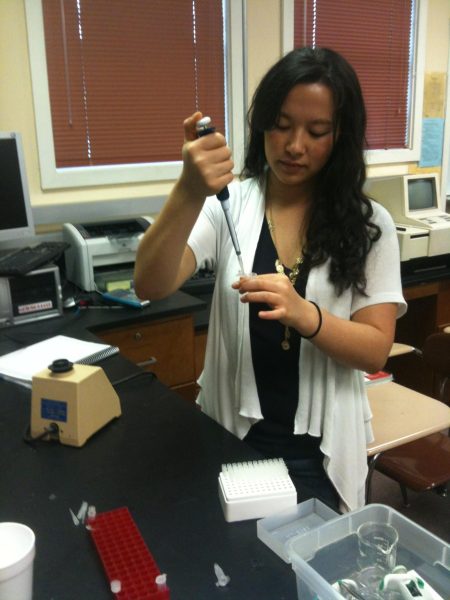Confusion over district medicine policy
Some students believe the current school policy pertaining to medicine use is potentially harmful to those who are in need of emergency medication.
Cal High and the other schools in the district require all prescription drugs to be registered with the school.
But the problem is many students don’t know this.
“They never asked me to register it,” sophomore Daniella Muhlebach said of her asthma medication. “They couldn’t help me find my inhaler after I lost it because it wasn’t registered.”
To register a prescription drug, students are given a form that must be signed by students, their parents and a doctor. This form must be completed every school year and any time the prescription changes.
There is an extra section to the form to be completed that allows students to carry their medication on them at school.
Because doctor visits are required to get the forms signed, students can end up paying more than $100, depending on insurance, during their four years in high school to keep life necessary medication on them.
The policy is underpublicized. There is no mention of medication use in the student handbook, and the policy is not easily found on school or district websites.
The easiest way to learn anything about medication is to personally ask a school administrator or go to the school website and type “medication” into the search bar.
Unless students have prior knowledge from past experience, they could get into trouble for carrying medication on school premises without knowing they are breaking any school rules.
But it is vital for some students, including those suffering from asthma, to carry their medication with them on campus because they never know when an attack will occur.
If students who need the medication don’t have it on them, they more than likely have to rely on staff members without medical training for help.
Attendance secretary Gunilla Norton said if school staff can’t help a student they will call Cal nurse Kay Smith, who is only on campus on Fridays.
Some of the main concerns with students carrying medication on campus is the possibility of using it incorrectly or sharing it with other students.
A 2010 national survey indicated about 11.4 percent of teens abuse prescribed drugs and 25 percent end up becoming addicted. The district policy is in place to avoid students becoming a part of this statistic.
“You can’t actually get high off of it,” sophomore Daniella Muhlebach said of her asthma inhaler. “If you take too much you just get shaky.”
Neither an epi pen nor an asthma inhaler brings with it a feeling that would make a person want more.
“I always carry an inhaler, Advil for back pain and menstrual cramps, and an epi pen for emergencies only,” said a junior girl who wished to remain anonymous because she doesn’t register her medication. “ It’s not really worth it. What I carry isn’t dangerous to me or anyone else.”




